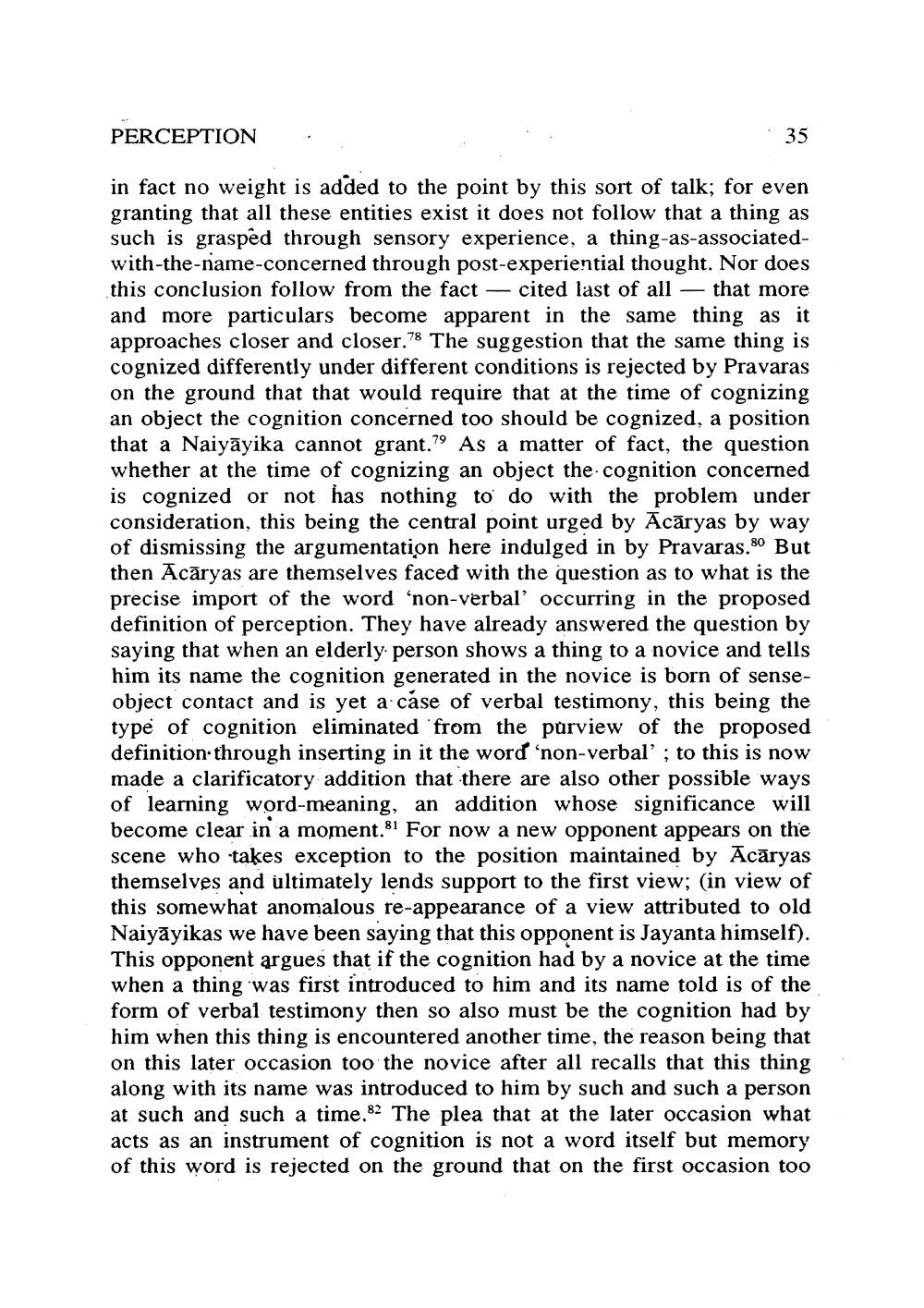________________
PERCEPTION
35
in fact no weight is added to the point by this sort of talk; for even granting that all these entities exist it does not follow that a thing as such is grasped through sensory experience, a thing-as-associatedwith-the-name-concerned through post-experiential thought. Nor does this conclusion follow from the fact — cited last of all — that more and more particulars become apparent in the same thing as it approaches closer and closer.78 The suggestion that the same thing is cognized differently under different conditions is rejected by Pravaras on the ground that that would require that at the time of cognizing an object the cognition concerned too should be cognized, a position that a Naiyāyika cannot grant.79 As a matter of fact, the question whether at the time of cognizing an object the cognition concerned is cognized or not has nothing to do with the problem under consideration, this being the central point urged by Acāryas by way of dismissing the argumentation here indulged in by Pravaras.80 But then Acāryas are themselves faced with the question as to what is the precise import of the word 'non-verbal' occurring in the proposed definition of perception. They have already answered the question by saying that when an elderly person shows a thing to a novice and tells him its name the cognition generated in the novice is born of senseobject contact and is yet a case of verbal testimony, this being the type of cognition eliminated from the purview of the proposed definition through inserting in it the word 'non-verbal'; to this is now made a clarificatory addition that there are also other possible ways of learning word-meaning, an addition whose significance will become clear in a moment.81 For now a new opponent appears on the scene who takes exception to the position maintained by Acāryas themselves and ultimately lends support to the first view; (in view of this somewhat anomalous re-appearance of a view attributed to old Naiyāyikas we have been saying that this opponent is Jayanta himself). This opponent argues that if the cognition had by a novice at the time when a thing was first introduced to him and its name told is of the form of verbal testimony then so also must be the cognition had by him when this thing is encountered another time, the reason being that on this later occasion too the novice after all recalls that this thing along with its name was introduced to him by such and such a person at such and such a time.82 The plea that at the later occasion what acts as an instrument of cognition is not a word itself but memory of this word is rejected on the ground that on the first occasion too




